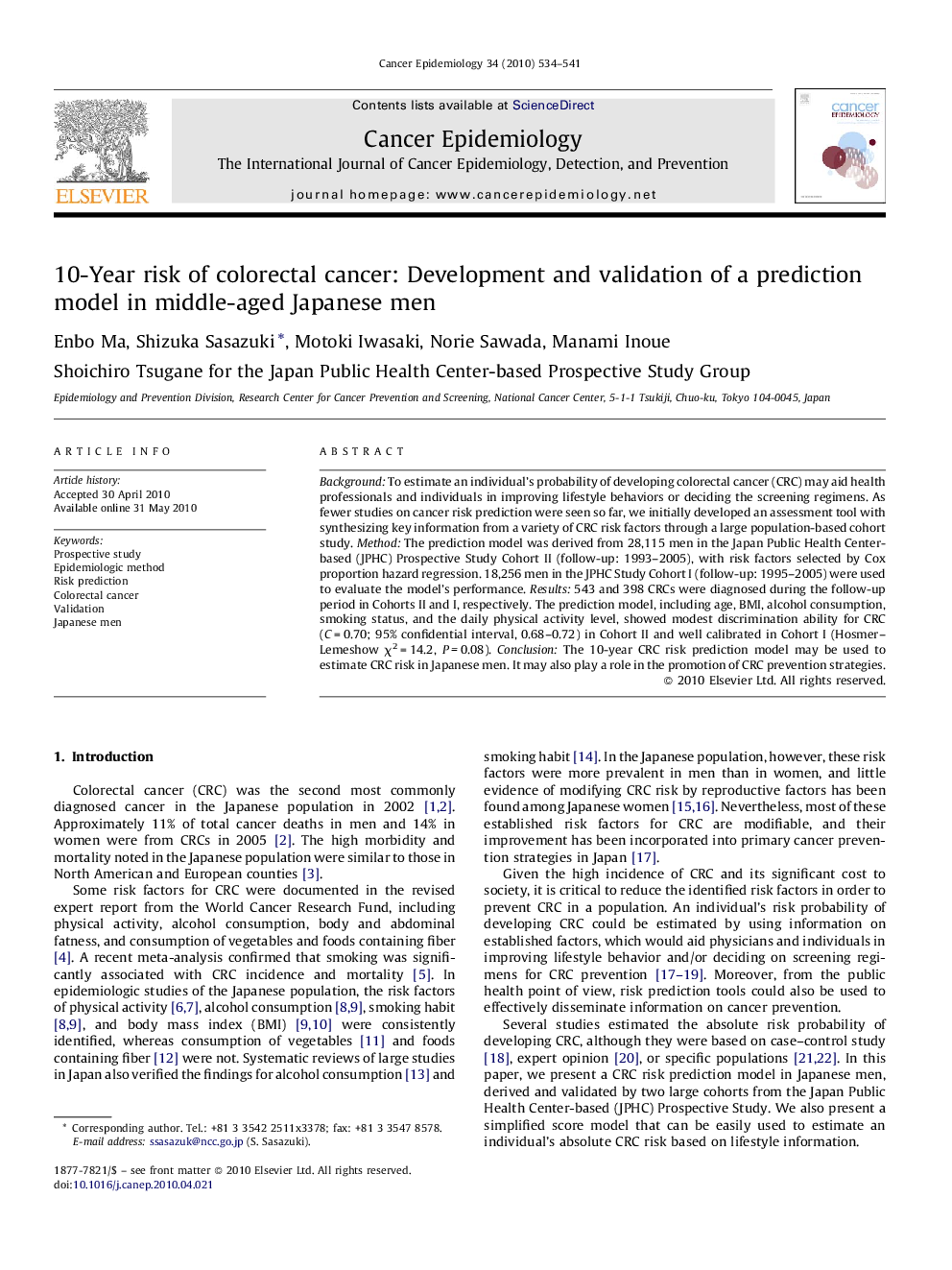| Article ID | Journal | Published Year | Pages | File Type |
|---|---|---|---|---|
| 2109564 | Cancer Epidemiology | 2010 | 8 Pages |
Background: To estimate an individual's probability of developing colorectal cancer (CRC) may aid health professionals and individuals in improving lifestyle behaviors or deciding the screening regimens. As fewer studies on cancer risk prediction were seen so far, we initially developed an assessment tool with synthesizing key information from a variety of CRC risk factors through a large population-based cohort study. Method: The prediction model was derived from 28,115 men in the Japan Public Health Center-based (JPHC) Prospective Study Cohort II (follow-up: 1993–2005), with risk factors selected by Cox proportion hazard regression. 18,256 men in the JPHC Study Cohort I (follow-up: 1995–2005) were used to evaluate the model's performance. Results: 543 and 398 CRCs were diagnosed during the follow-up period in Cohorts II and I, respectively. The prediction model, including age, BMI, alcohol consumption, smoking status, and the daily physical activity level, showed modest discrimination ability for CRC (C = 0.70; 95% confidential interval, 0.68–0.72) in Cohort II and well calibrated in Cohort I (Hosmer–Lemeshow χ2 = 14.2, P = 0.08). Conclusion: The 10-year CRC risk prediction model may be used to estimate CRC risk in Japanese men. It may also play a role in the promotion of CRC prevention strategies.
